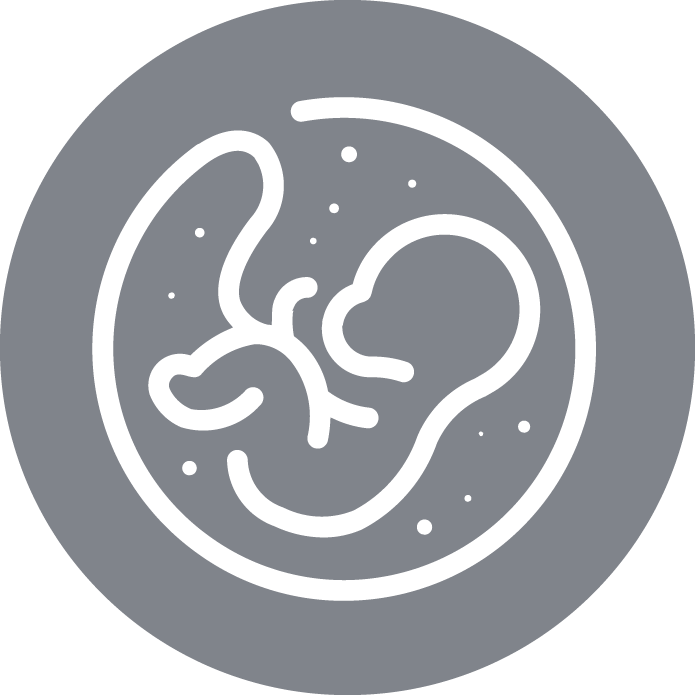“Among scientists there is no difference between genders, but rather between people”, Irene Cervelló on International Day of Women and Girls in Science
Today, like every 11 February, the International Day of Women and Girls in Science is taking place, and to commemorate it we want to join the necessary conversation about equality and to propose female role models which are an incalculable asset for our organisation. Without our researchers, our scientific advances would not be the same.
The story that we are using as an example this year is that of Irene Cervelló Alcaraz who holds a doctorate in biology. With her, we are taking a closer look at the achievements and recognitions of women in the field of human reproduction. At present, she works as a Miguel Servet researcher at the Carlos III Health Institute in the Institute of Health Research (IIS La Fe) and the IVI Foundation. Also, she is a lecturer and coordinator of the Master's Degree in Biotechnology for Assisted Human Reproduction at the University of Valencia.
The professional career of Dr Cervelló has developed in different centres of national and international prestige, maintaining a focus on improving fertility in women with reproductive problems. Now, her search for a solution revolves around obtaining an effective therapy for women with endometrial pathologies.
She was clear about her scientific vocation from an early age. Her parents were a role model and motivation. On this occasion we asked her to put herself in the shoes of those girls that she could end up tutoring in the near or distant future and she gave us the following advice for them: “I would tell the girls who want to be researchers that they should follow their dream, that there is no difference between genders, but rather between people[...] In my opinion, there are no predefined roles in science according to gender. Women must be able to perform the role that they want”.
What motivated you to become a scientist? Do you think that science is vocational?
I think that there is a very large part of this profession that is vocational. A person may have a certain interest in a specific area from the outset and decide to follow their curiosity, but there is also the possibility that this vocation will emerge gradually as it did in my case.
One of the main reasons why the profession captivated me was, undoubtedly, the chance to transfer knowledge generated through research into clinical practice. At the IVI Foundation they had lines of translational research that offered the chance to improve the reproductive health of women. Seeing that my work was then going to be applied in such a direct way
was what drove me to devote myself to this.
Sometimes basic scientists need to discover other points of view; for me, being close to
patients, doctors and the clinic was one of the things that most motivated me to train as a
researcher.
Did you have role models in science during your childhood?
My parents are doctors with a great professional vocation and, although their speciality is not reproductive medicine, from an early age they conveyed the real importance of devoting yourself to what you like.
During my childhood I had a lot of references from their effort, perseverance and study. I have seen them attend congresses, give conferences, study cases at home or assist patients over the phone.
This work requires involvement and commitment. For me, it is normal to read a paper outside of working hours, attend conferences or finish a grant because we have a deadline; and that is partly because at home I always had examples of those values.
What were the main challenges?
Challenges are continuous in this profession. At a scientific level you do not always obtain the results you would want or sometimes you lack the means or resources. The challenge arises in those moments, where you need to look for alternatives to be able to answer your questions and hypotheses with a solid scientific method and strong evidence.
Also, an essential part of our work is reading, studying and staying up to date; you can’t get left behind. As a scientist you cultivate skills such as resilience. You need to be persistent and learn to fall and get back up again, here nothing works out first time.
Other challenges are more linked to professional instability and the difficulty obtaining grants and funding for projects. Hence why the profession is a constant challenge. However, it is true that, compared with the public sphere, us professional scientists who work at the IVI Foundation and IVIRMA, we are privileged, this is a “paradise.”
What would you say to girls who want to be scientists?
I would tell them that they shouldn’t be scared about straying from careers that are conventionally considered feminine. They can be engineers, astronauts, firefighters... Their opportunities will be the same as those of men, but they will have to study and work hard.
In particular, I would tell the girls who want to be researchers that they should follow their dream, that there is no difference between genders, but rather between people.
Being a researcher is not a typical profession, where you switch off your computer at 5 and don’t think about work until the next day; but it brings enormous moments of joy. However, I am certain that girls who devote themselves to research in the future are going to encounter problems and challenges that are very different to the current ones.
Do you believe that the role of women in science is important?
In my opinion, there are no predefined roles in science according to gender. Women must be able to perform the role that they want and have the same opportunities, whether in science or in any other area.
Traditionally, science has been a very masculine sector and women, as in other sectors, we have been under-represented, fortunately that is changing gradually.
For example, in the past few years, in the Master's Degree in Biotechnology for Assisted Human Reproduction at the University of Valencia, there have only been 10% men, which is striking.
How much has the profession changed from when you began and now?
It is true that as a woman I have seen in recent years how great advances have been made in terms of balancing work and family life. However, this hasn’t just happened in science, but rather at a general level, in other jobs too.
On the other hand, the pandemic has served to provide visibility and showcase our profession. However, I still believe that in Spain we perform miracles with the few resources that we have. We also have a very serious problem with the brain drain. In my opinion, there should be a long term strategy for science, and times should not depend on or be constrained according to governments and legislatures, as this really slows down the continuity of our projects.
How do you view the scientific panorama in Spain?
The scientific panorama in Spain seems to have improved, especially as a result of the pandemic, as I stated, as it made it possible to show the importance and crucial role of researchers in different biosanitary fields.
However, the health crisis has made it possible for us to become aware of the precarious situation of research in our country and the importance of investing in it, I hope that it is not a short-lived concern. To quote Severo Ochoa: “A country without research is a country without development”.
What is your line of research? What led you to it?
My doctoral thesis focused on the identification of stem cells in the murine and human endometrium. It was a great challenge as these types of cells in those tissues had never been described.
My current line of research emerged as the natural evolution of the thesis. Regenerative Medicine, which encompasses everything from cell therapy to bioengineering of tissue, was the next logical step considering my scientific background.
As a scientist I have worked researching the role of stem cells in the biology of the healthy and pathological endometrium; and looking for its applicability to endometrial pathologies through cell therapy.
At present, in the laboratory we are very focused on the use of Platelet-rich plasma (PRP) from the umbilical cord to treat endometrial pathologies as a non-invasive method. We will begin a clinical trial very soon.
Also, in the past few years we have made progress in the field of bioengineering of the female reproductive system. Our approach is based on the development of hydrogels using endometrium and decellularized ovary, for their use in both in vivo and in vitro models. The idea is to use them for the administration and release of factors in in vivo models and as
mediums for organoids in in vitro models.
Would you choose this profession again?
I would undoubtedly choose it again, but I would like certain things to change, such as having greater appreciation of the work that we do. I hope that, over the coming years, both male and female scientists can attain greater professional stability and social recognition.



